A recent comment on my post From Asian to Caucasian: Response From a Reader from last year, and which I’m sure you’ll all agree is worth highlighting here rather than having it wasted unread in obscurity on an old post!
With permission, in a moment I’ll place you in the capable hands of Anna then, to whom I’m extremely grateful for the time and effort she put into this. But first, because I haven’t really made it clear previously, I should mention that I’m always open to guest posts (which this 2500+ word comment has surely become), as for reasons of time, resources, and/or personal interest, I am simply never able to write as many posts on as many subjects as I like. If you’re ever interested, and please don’t be put off by thinking that there is a minimum word-limit(!), then please just drop me a line.
Now, without any further ado:
…Hey James,
Your work is fascinating and is quite hilarious at times. I am currently writing a thesis on cosmetic surgery in South Korea and your blog really caught my interest. I wanted to just add to the comments here and to also add to your discussion. Beware, this might get a little long.
First of all, I know people can get quite defensive when people say Korean women are undergoing cosmetic surgery to become “white.” (evidence of the comments above). I mean honestly, nobody would like to hear that. Also, Korean women, as was mentioned in your blog and in other people’s comments, don’t go around piping that they did their eyes to look white. One of the driving factors in contemporary society as to why Korean women go under the knife is because 1) cosmetic surgery is a marker for upper class wealth 2) social mobility and 3) economic stability. Women get their faces done or whatever part they deem necessary to look prettier because beauty gets jobs and husbands in an extremely competitive market, and I mean both the market for jobs and husbands.
 Furthermore, If you take the time to read Korean forums on cosmetic surgery, a majority of women undergo cosmetic surgery to gain self confidence. It is quite interesting and tragic as well that many of the Korean women who post on these forums talk about how cosmetic surgery will bring a new stage in their lives. Beauty is everything. And they talk about searching for self-esteem like they never had it in the first place and the only way to be “reborn”, “transformed” or to gain their lost self-esteem is through cosmetic surgery. Some of these Korean women are aware of the pressures on them from society to get cosmetic surgery as well and they complain about those reasons too. Korean society is not only very conscious about appearances but how those appearances conform with what the cultural norms are. Therefore, if one girl gets a job because of a pretty nose or eye job, then there will be tons of women who will go get that nose job in the hopes that their chances for getting the next job will be increased. Its a dog eat dog world.
Furthermore, If you take the time to read Korean forums on cosmetic surgery, a majority of women undergo cosmetic surgery to gain self confidence. It is quite interesting and tragic as well that many of the Korean women who post on these forums talk about how cosmetic surgery will bring a new stage in their lives. Beauty is everything. And they talk about searching for self-esteem like they never had it in the first place and the only way to be “reborn”, “transformed” or to gain their lost self-esteem is through cosmetic surgery. Some of these Korean women are aware of the pressures on them from society to get cosmetic surgery as well and they complain about those reasons too. Korean society is not only very conscious about appearances but how those appearances conform with what the cultural norms are. Therefore, if one girl gets a job because of a pretty nose or eye job, then there will be tons of women who will go get that nose job in the hopes that their chances for getting the next job will be increased. Its a dog eat dog world.
Now set that all aside. I believe that everything has a historical context and cosmetic surgery in South Korea is no exception. Cosmetic surgery in South Korea didn’t just appear in the 1990s to attain a “universal beauty standard.” Nor is the pervasive popularity of specific procedures just because of modernization and the consumer culture it brings. First of all, I take issue with the claim of a “universal beauty standard”. Modernization and globalization has complicated a lot of things so what may seem true now may not ring true when societies were isolated from each other. Korea, for example, was known as the hermit kingdom due to their refusal to open up to foreign influences until they were basically pried open. BEAUTY STANDARDS THEN did not fall in line with “universal” beauty standards now, to say the least. An oval and round face as well as small features were considered beautiful. If you look at old portraits of Korean women, do you see women with overly sized dopey eyes and shaved V-line chins? Or whatever the damn letter is? It is quite the opposite.
Beauty standards may all seem the same way now but that is because we have been socialized to think a certain way due to overwhelming western influences. I know this is an argument that some people get tired of hearing but that is just the truth. Modern history was dominated by our Western/European counterparts and as globalization is rapidly changing the way information is disseminated, such beauty ideals are able to really influence the individual sitting in the living room in any part of the world privy to a TV or any other popular media outlet and those channels in their native language that send such messages. Korean media is no exception. As we all know the Korean media is largely responsible for the beauty standards that Korean women consume.
Now, lets talk about history some more. Since each country has a different history, such history should be used to help explain why certain practices become widespread. Yes, cosmetic surgery is a universal phenomenon in that people do it all over the world. But depending on the place, certain plastic surgery procedures are preferred over others. The question here that we need to ask, in which James has been eloquently trying to answer, is why do women go for such particular procedures?? To attain a universal beauty standard?? Well that answer would make everything too easy now wouldn’t it? And I already said that in Korea, beauty was quite different until they were confronted with different bodies such as the west.
Korean people are first and foremost going to do cosmetic surgery on their eyes, nose, and chin. The most popular being the Double eyelid surgery. Now James emphasizes why the double-eyelid??? Why is this procedure the most popular?? Just because the SUPPOSEDLY universal standard dictates this? Or because Asian women just want to be white?? We really need to probe a lot deeper. WHY, to Korean women, is the big dopey double eye lid considered beautiful when arguably before the infiltration of the west, it wasn’t?
Now, I know there is a percentage of Korean people who already have the double eyelid, so whats the big deal? Well the big deal is that those who didn’t have the double eyelid were considered just as good looking until this ideal changed. The fact that the single lid was problematized after a certain point in Korean history is telling of the fact that perceptions in Korean society began to change. Beauty standards is not in fact universal. Something was influencing Koreans to change their mind. Now what was it??
I look at Korean history in the past century as a whole bunch of successive traumatic events which modernization has just served to confuse and exacerbate Korean society. You have Japanese colonization, then independence which was short-lived with the U.S. occupation, then the split of the peninsula, the fratricidal Korean War, and the ensuing U.S. dominance that followed afterwards. Then without much time in between Koreans were caught in a nationalistic frenzy to economically develop, then democratization happened, and then market forces opened up and voila! in a matter of 30 years Korea is not only a democracy, it is one of the biggest economies in the world, and is still experiencing the onslaught of modernization. What does this equal?? A very confused and unstable society. I honestly think the Korean people have not been able to properly digest their traumatic past. Now what does this have to do with cosmetic surgery? Read on if you haven’t been bored out of your mind yet.
Now starting from Japanese colonization, Koreans were taught to believe they were inferior. Since the Japanese didn’t look too different from Koreans, they couldn’t really harp on the whole racially different argument to establish their superiority. However, it was a traumatic experience nonetheless, in which the Korean people were subjected to mental and psychological degradation where they were made to believe, they were not “good enough.”
Now with the entrance of the Americans during and after the Korean War, this is where I believe Koreans began to see their bodies, their PHYSICAL FEATURES as defected and flawed. Other scholars such as Tae Yon Kim and David Palumbo-liu discuss this affect on the Korean people as they were confronted with an overwhelming presence of American bodies. The Americans, upon coming to Korea to “help” the “poor people”, were confronted with a curious looking bunch. One of those Americans, by the name of Dr. Millard, set out to fix such faces in order to “read” the Koreans better. Dr. Millard was a military surgeon who was sent to Korea on a good will mission to reconstruct war-damaged bodies. Dr. Millard, in addition, to reconstructing such “war damaged bodies” became obsessed with making the Korean or “oriental” legible for the American people. He thought the single lid made Koreans look lazy, sneaky, untrustworthy and basically dumb. He became the first white person to create a double-eyelid surgery for the Asian face. This is monumental. Although double-eyelid surgery was present in Japan before the introduction of cosmetic surgery in Korea, what David Palumbo-liu states and other authors also cite him, is that cosmetic surgery actually reached its popular high point in Korea during this time frame. Dr. Millard began to “treat” Korean patients and he has photos of his first Korean patients in his original work, Oriental Peregrinations. It’s fascinating and extremely disturbing at the same time. Basically the Korean people were mentally brainwashed to view their eyes, their facial shape as inherently flawed. Their natural features were a defect meant to be fixed. The introduction of Dr. Millard’s double eyelid surgery during the Korean War really shows how cosmetic surgery is tied up with trauma, war, and foreign domination. The words he used to describe Korean eyes in his articles, are used in Korean websites, in present day Korean websites to describe natural single lidded Korean eyes. Why is it that the words used to describe Korean eyes by a an American military surgeon during the Korean War, used to describe Korean eyes in modern day society?? Korean websites are carrying on the tradition of passing on this idea that Korean eyes are naturally defected, if you have the single-lid that is. And the only difference is that now, double eyelid surgery is cloaked under the label for women to look more beautiful.
 There are more linguistic connections in descriptions of the Asian eye that harks back to Korea’s traumatic history but I won’t go into it (right: Elod-Eye by darkpatator).
There are more linguistic connections in descriptions of the Asian eye that harks back to Korea’s traumatic history but I won’t go into it (right: Elod-Eye by darkpatator).
So Korean women undergo cosmetic surgery to look more beautiful and yes we can just stop it at there. They just want to look beautiful. But why I ask again, those CERTAIN aspects? Why did those certain aspects become what was “Beautiful?” when it wasn’t before? Although Korean women may not know that they are changing their eyes based on white standards of beauty, (in fact many wholeheartedly believe the double eyelid surgery is tailored to make Asian eyes more beautiful) single-lidded eyes were problematized because of confrontations with the West and now it has become so commonplace in Korea that these origins have been forgotten and it is now a natural thing to think. That single lidded small eyes are ugly and big dopey eyes are pretty and that is just the way it is because they are told that and they consume that every day of their lives.
I think, saying Korean people are fixing their eyes to become more Caucasian is not the right way to put it. In my opinion, Korean people are fixing their eyes because they are naturally made to believe that it is flawed, a legacy that was left by Korea’s historical trauma. I see cosmetic surgery in Korean society as a way Korean people are trying to reconcile their “flawed bodies” and “fix” themselves. I look at cosmetic surgery a bit differently and it might seem a bit far fetched but when you keep digging, sometimes you can’t help but think this way.
This is where trauma comes into the picture. My argument, basically sees unresolved trauma as a major factor in the pervasive practice of cosmetic surgery, especially the double eyelid. I won’t go in depth there because that would require me to talk about trauma and how trauma can last for generations. But anyways I hope that my comments show cosmetic surgery in Korea is wrapped up in a lot of complex issues.
IT IS NOT just about attaining a beauty standard or to look white. There are historical consequences that explain as well as add to the modern picture of why Korean women flock to clinics to get their eyes done.
This message probably won’t be read but this was a really great exercise for me to keep my mind active and up to date with all the stuff I have to read for my research. I know it was quite selfish of me to post such a long entry so my apologies.
But hopefully somebody learns something and gains or at least thinks again when discussing this subject.
Addendum (in a follow-up comment):
Also, I read my post again and I didn’t specify what kind of Korean websites, I meant Korean cosmetic surgery websites.
Also another piece of interesting information is that cosmetic surgery originally had a bad reputation due to its associations with prostitution during and after the Korean War. Basically cosmetic surgery was seen as disreputable because Korean war brides were the ones who mostly underwent cosmetic surgery in order to better assimilate into their new American husband’s life. These Korean War Brides were seen as prostitutes and some of them really were. So another little interesting piece to the whole picture –> forwarding now 50 years later cosmetic surgery is such a pervasive practice that it is now quite the cultural norm.
I have provided some readings that briefly talk about this, because cosmetic surgery in Korea is such a little explored subject in Academia, and the majority of the articles just skim the surface, the literature below I believe has done some justice on the topic as well as how U.S. domination has affected Korean society.
• Dissertation called the “The Moving Eye: From Cold War Racial Subject to Middle Class Cosmopolitan, Korean cosmetic Eyelid Surgery, 1955-2001″ by Taeyon Kim
James: I haven’t been able to find a copy of that online unfortunately, but in case the name sounds familiar, I discuss her 2003 journal article “Neo-Confucian Body Techniques: Women’s Bodies in Korea’s Consumer Society” (no longer *ahem* free to download…hint hint) at great length in my series entitled journal article “Women’s Bodies in Korea’s Consumer Society”, starting here.
• Nadia Kim, Imperial Citizens: Koreans and Race from Seoul to LA (2008)
• David Palumbo-liu, Asian/American: Historical Crossings of a Racial Frontier (1999)
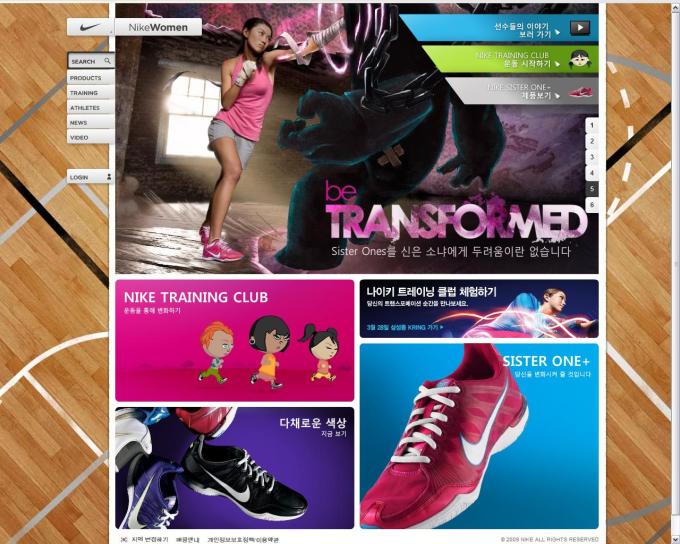 ( ELP_NIKE_KOREA by gkristo )
( ELP_NIKE_KOREA by gkristo )
Thoughts?
And here’s an update from Anna…
Hey James!
I was just doing some more reading and I realized that I had written incorrect information about the Japanese not being able to use racist ideologies during Korea’s colonization. In fact they did, in terms of Japan being the superior blood race–>a focus on ethnonationality. Japan differentiated itself from Korea by focusing mainly on the centrality of blood. Although Japan outwardly promoted a Pan-Asian ideology where the Japanese would protect their Asian neighbors from Western imperialism, the brutality of the Japanese towards the Koreans obviously showed that this was all bullshit. The oppression of Japan towards Korea also helped Korean individuals foment Korea as a “nation” around blood as well. Nadia Kim says this is connected to why Koreans are so obsessed with blood types…pretty funny. So “race” for Koreans originally focused on ethnonationality and purity of blood and blood ties. Then the West came in and complicated the picture with their own racial ideologies of black and white which also the Koreans were pretty primed to accept due to their already hierarchical associations to the lighter skin/darker skin complex.
Also, I won’t go into detail too much because I have probably lost you already, but it seems like the concept of lighter skin and the color white as pure and good was a pretty salient concept in Korea before the West. Koreans and the Japanese have seemed to have an obsession with white for a while.
Kim writes, “The country has valorized white as representatives of its people’s purity and desire for peace since the Three Kingdoms Period of 57 B.C. to A.D. 668. One manifestation was Koreans’ primarily white clothing, earning them the moniker the “white-clad nation.” Because the Koreans continued to wear solely white clothing through the middle twentieth century, Western visitors would be captivated by the “enormous white waves sweeping the streets” (27).
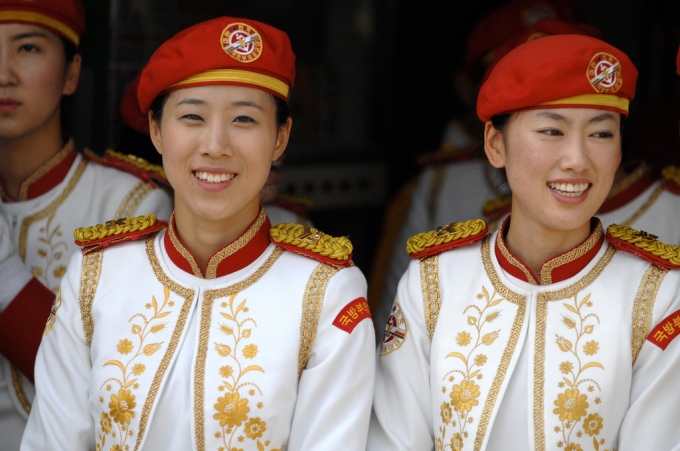 ( Korean War Museum and Memorial – Seoul 090501 by anja_johnson )
( Korean War Museum and Memorial – Seoul 090501 by anja_johnson )
She then goes on and talks about how lighter skin/dark skin also corresponded to where you stood in the rigid neo-confucian hierarchies of Korean society. But basically, this shows how Koreans were pretty well “primed” to accept the White/Black dichotomy that was brought by its relations with the US/West.
So to wrap up and reiterate again, the Japanese did use racial ideologies but focused mainly on blood purity, the superior “blood race”, although I’m sure they also used other things to establish their superiority.
I really really recommend reading her book its pretty awesome.
…

Filed under:
Body Image,
Cosmetic Surgery,
Cosmetics,
East Asia,
Readers' Emails,
Skin Whitening Tagged:
Caucasians,
성형수술,
Plastic Surgery 





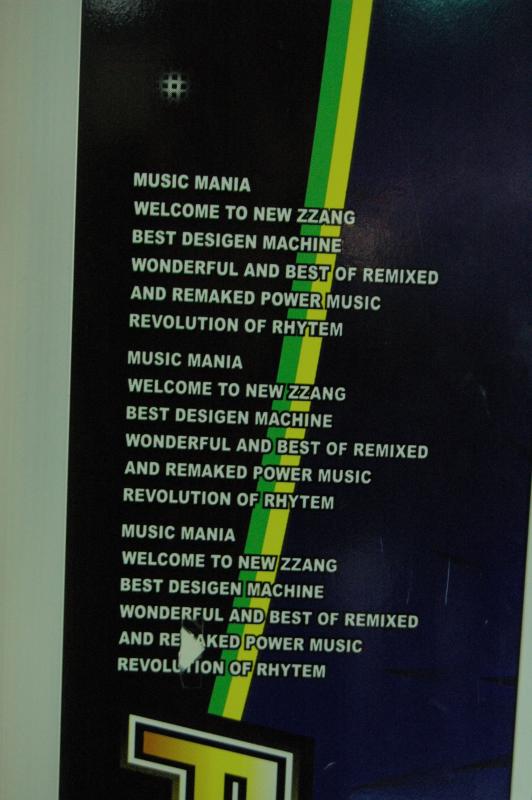
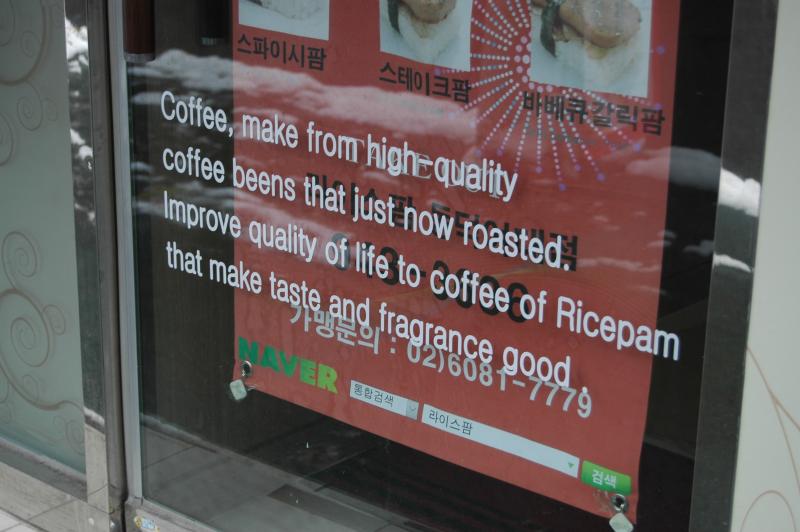


 © Chris Backe - 2010
© Chris Backe - 2010


 RSS Feed
RSS Feed


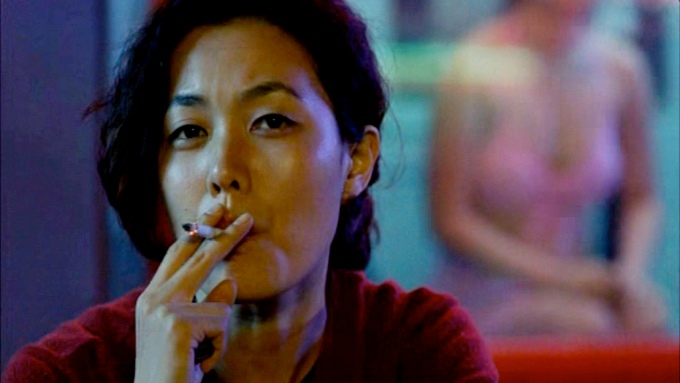











Recent comments